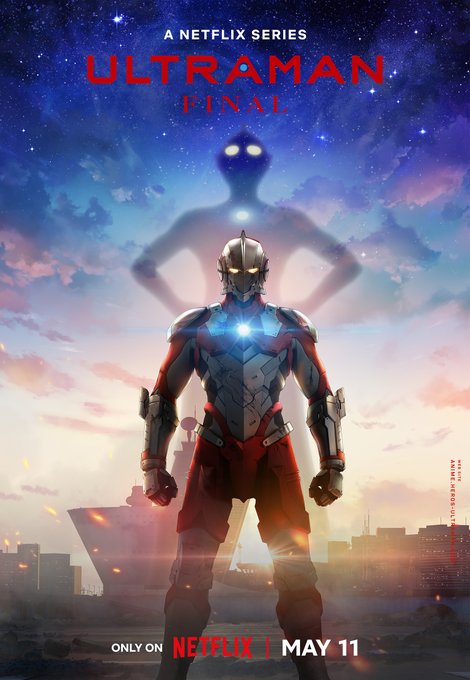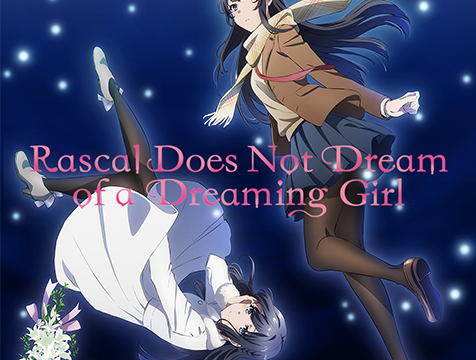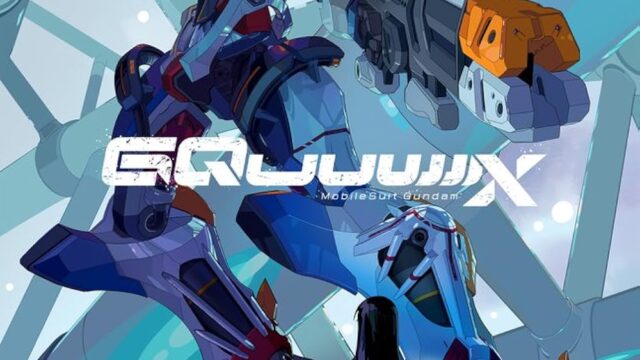English Dub Season Review: Ultraman Final
Based on the media franchise created by Eiji Tsuburaya, Tohl Narita, and Kazuho Mitsuta, Ultraman is a CG anime continuation of the first Ultraman series. The series occurs several years after the original show, where Shin Hayata now works as a defense minister. However, he does not remember becoming Ultraman and saving the world from aliens. His former personnel, Matsushiro Ide, helps Hayata recover his memories so he can help the Science Patrol eliminate new aliens invading Earth. Hayata’s son, Shinjiro, who gained the “Ultraman Factor” from his father, joins the fight when the Science Patrol gives him their top-secret Ultrasuit.
Believe it or not, the Netflix interpretation of Ultraman is my first exposure to the iconic franchise. Despite being familiar with the character through specific shows inspired by it, I hadn’t watched a single interpretation of Ultraman, whether it was a television show or a movie. That is until I took the opportunity to watch the Netflix series. Better late than never, as I always say.
The third season, titled Ultraman Final, continues the adventures of Shinjiro and his Ultraman team. The SSSP has Shinjiro help test out and develop a new suit to better adapt to his improving powers. Eventually, Shinjiro blacks out, leaving him with no memory of what he did. He later wakes up to discover that Ultraman is deemed a public menace when he destroys multiple buildings during a fight against an alien. Not only that but Shinjiro is also blamed by the SSSP for the incident. It’s later revealed that he’s part of a nefarious plot from Mephisto, an alien attempting to eradicate the Ultramen with the power of the Giant of Light by destroying people’s faith in their protector. This led to Shinjiro going on the run to clear his name and stop Mephisto from executing his plan.
The first two seasons of Ultraman were suitable upgrades that provided fans with a combination of nostalgia and modern themes. More importantly, they are mildly acceptable for newcomers who grew up watching superhero-related projects, including Power Rangers. Granted, the series has a CG animation presentation that’s far from spectacular, and the English voice cast was sometimes bland. However, they had moments that were enjoyable enough to compensate for their easy-to-spot flaws, including the themes and characters. Unsurprisingly, season three of Ultraman delivered the same qualities that made the previous two seasons entertaining while offering a thrilling conclusion to the recent interpretation of the classic media franchise.
One reason is Shinjiro’s struggles with being Ultraman, which elevated the series. Season three sees Shinjiro encountering his powers being out of control, causing him to fear that he would hurt innocent people. It doesn’t help that the people turned against Ultraman for something he didn’t do, making his journey even more difficult. In the end, Shinjiro learns to rely on his trust in his friends to set things right and be the hero he wants to be. The season also explored more of Rena Sayama, who delves more into her past, leading her to become the fourth successor of Ultraman. It was a decent development that has Rena gone from being the usual damsel in distress to fighting alongside the Ultraman team.
The season explored specific themes we’ve seen in other superhero shows and movies, including heroism and the difference between revenge and justice. For the latter, its third episode showcases Shinjiro battling Mephisto angrily after seeing him “kill” his father, Shin. His anger and the loss of control of his strength further emphasize Shinjiro as a menace to the public and his comrades. These themes provide plenty of character moments that are mildly engaging enough to bypass its similar narrative elements. The only issue that bugged me the most regarding its plot was in the last two episodes, in which the true mastermind behind the mess was revealed. The motive behind it was respectable, but the twist seemed more forced than shocking. I would’ve preferred Mephisto to be the season’s main villain through and through.
Ultraman is another series featuring the anime department taking the CG route. I’m sure you’re all aware that I’m one of the few people who aren’t fond of CGI in anime, especially in shows that use 100% CGI. While it offers an extra dimension to the set pieces and character designs, the CGI elements lacked a compelling depth in its cheapness to compete with the already stellar traditional animation. Ultraman is unsurprisingly another example of this trend, with the facial movements being sluggish to the point where it felt uncanny at points. Fortunately, the only saving grace for the animation is the action sequences. Whenever the characters shut their yaps and go into battle mode, the animation immediately makes an effort to make the battles swift, intense, and immersive. When one part of the style works better than the other, that’s how you know that the CGI trend still has miles to go to be as popular as 2D animation in the anime department.
Another element I felt mixed about was the English voice cast. While some of the actors were fine with their performances, their delivery of the dialogue still struggled to match the characters’ given expressions sometimes. The English lines also didn’t match all of the characters’ mouthing, making it more distracting than in the anime with 2D animation. The only actor in the cast I was familiar with was Josh Hutcherson, who voiced Shinjiro in the English dub. The first time I heard Shinjiro’s English voice, I noticed that it reminded me of Hutcherson, and I was right on the money when I looked it up. Despite being bland during specific moments, I thought Hutcherson did all right voicing Shinjiro. Tara Sands and D.C. Douglas were also serviceable as Rena Sayama and Edo, respectively.
Overall, the third and final season of Ultraman offers an enjoyable and occasionally thrilling conclusion to the recent adaptation of the franchise. It still has the same issues from previous seasons, including the cheap animation and flawed voice acting. However, the show also maintains its heroic themes and character moments that are engaging enough to blast out of its faltering quality. Did it make me want to watch the other interpretations of Ultraman? Maybe, but not anytime soon. Despite my distaste for CG anime, I didn’t mind this being my solid first impression of the sci-fi franchise.
























"There are also other characters that come and go (also owned by the Warner Bros. Discovery conglomerate media company)."
Huh. Is that just referring to other characters from the show itself, or is this implying that the new season is going to have cameos from other WBD IPs